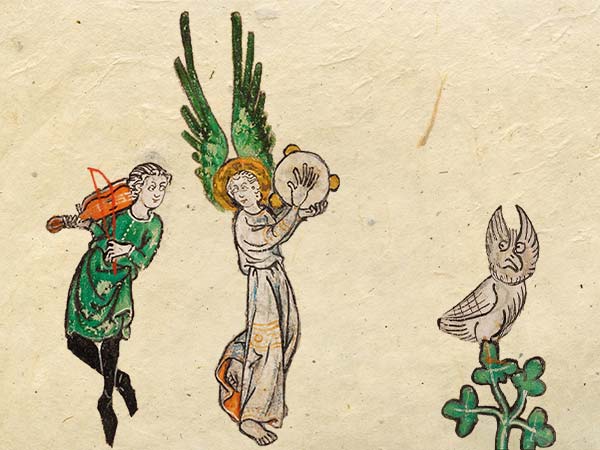Subtotal: $
Checkout-

The Harmony of the World
-

The Tapestry of Sound
-

Let Brotherly Love Remain
-

Take Up Your Cross Daily
-

The Bones of Memory
-

Poem: “Sunrise and Swag”
-

Poem: “Poland, 1985”
-

Church Bells of England
-

Editors’ Picks: “Walk with Me”
-

Editors’ Picks: “Shakeshafte”
-

Editors’ Picks: “The Least of Us”
-

Forum: Letters from Readers
-

Celtic Christianity on Iona
-

The Catherine Project
-

Mercedes Sosa
-

Covering the Cover: Why We Make Music
-

Music and Morals
-

The Death and Life of Christian Hardcore
-

Vallenato Comes Home
-

Does Political Music Change Anything?
-

Adventures in Americanaland
-

Music, Memory, and Alzheimer’s
-

Why We Make Music
-

Doing Bach Badly
-

Dolly Parton Is Magnificent
-

Go Tell It on the Mountain
-

Reading the Comments
-

In the Aztec Flower Paradise
-

The Strange Love of a Strange God
-

Is Congregational Singing Dead?
-

In Search of Eternity
-

Violas in Sing Sing
-

Hosting a Hootenanny
-

How to Lullaby
-

How to Raise Musical Children
-

How to Make Music Accessible
-

Chanting Psalms in the Dark

The Fiery Spirit of Song
What could be better than music to encourage the sad, humble the conceited, and mollify the hate-filled?
By Hildegard of Bingen, Martin Luther and Eberhard Arnold
March 20, 2022
Next Article:
Explore Other Articles:
Hildegard of Bingen (ca. 1098–1179)
O fiery Spirit, praise to you,
who on the tympana and lyre work and play!
By you the human mind is set ablaze,
the tabernacle of its soul contains its strength.
So mounts the will
and grants the soul to taste—
desire is its lamp.
In sweetest sound the intellect upon you calls,
a dwelling-place prepares for you,
with reason sweating in the golden labor.
Saint Hildegard of Bingen, from “Hymn to the Holy Spirit,” trans. Nathaniel M. Campbell (International Society of Hildegard von Bingen Studies).
Martin Luther (1483–1546)
Experience testifies that, after the Word of God, music alone deserves to be celebrated as mistress and queen of the emotions of the human heart (of animals nothing is to be said at present). And by these emotions men are controlled and often swept away as by their lords. A greater praise of music than this we cannot conceive. For if you want to revive the sad, startle the jovial, encourage the despairing, humble the conceited, pacify the raving, mollify the hate-filled – and who is able to enumerate all the lords of the human heart, I mean the emotions of the heart and the urges which incite a man to all virtues and vices? – what can you find that is more efficacious than music?
Martin Luther, What Luther Says vol. 2, ed. Ewald M. Plass (Saint Louis, MO: Concordia Publishing House, 1959), 982–983.

Artwork from The Maastricht Hours, an early fourteenth-century Christian devotional (Public domain)
Eberhard Arnold (1883–1935)
In 1935, Eberhard Arnold spoke to the Bruderhof community about how and how not to sing when gathered for worship.
The misuse of meaningful songs, or even only a lack of understanding and feeling in singing them communally, has a devastating effect. We cannot, for example, sing a deep song after we have just heard of a superficial interpretation of it. The same is true of other songs with a deep meaning. When we sing such songs in real community with the Spirit, we sense something of innermost holiness. Such songs should be sung only at very special moments, only at times of God-given experiences. How can we suggest songs that were once written in the Spirit, with the idea of producing a general feeling that does not exist; how can we sing “God is present with us!” when no one feels that God really is present; how dare we sing “Lord of all, to Thee we bow” when there is no real honoring of God’s greatness in the atmosphere of the meeting! This kind of misuse of songs borders on sin against the Holy Spirit.
That is why in our community we often sing apparently superficial songs that only give an inkling of the greatest things – things which at that particular moment should not be brought more strongly to expression. We need an inner criterion, a sensitivity for what is moving the circle at a given moment and for what each song expresses.
Songs of Light: The Bruderhof Songbook (Plough, 1977), xii–xiii.
Already a subscriber? Sign in
Try 3 months of unlimited access. Start your FREE TRIAL today. Cancel anytime.


















































Wolf Paul
"How can we sing 'God is present with us' when no one feels that God really is present; how dare we sing 'Lord of all, to Thee we bow' when there is no real honouring of God's greatness in the atmosphere of the meeting! This kind of misuse of songs borders on sin against the Holy Spirit." I would suggest that "God is present with us" is a truth that is, thank God, not dependent on our feelings, and we can therefore ALWAYS affirm it. The remainder of the verses of that great German hymn by Gerhard Tersteegen we can sing, just as many other songs and hymns including "Lord of all, to Thee we bow", in an attitude of prayer, saying, "Lord I believe; help Thou my unbelief! Make these words I sing a reality in my life!" In this way we can sing without hypocrisy, without pretending to a more profound piety or spirituality than we actually experience.